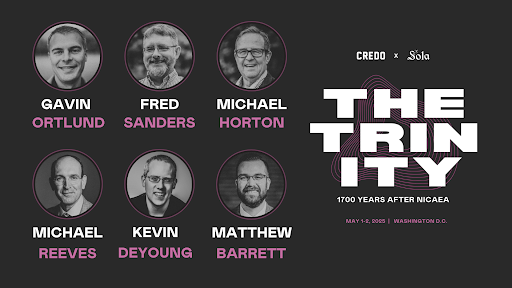
Latina Sint Discenda
Potestās (“Power”)
If I could be a superhero, my superpower of choice would be super easy to make: the ability to speak Latin.
Instead of yelling “blap!” when an arrow darts past my face or “pow!” when struck in my washboard abs, I’d school my rivals in the language of Augustus.
When trouble would appear out of thin air, I’d proclaim: Ubinam?—“where on earth?” And when my rival would seemingly die but then return to life, I’d utter: Dii boni!—“for heaven’s sake!”
Vērē (“Truly”)
It might seem stultus, “silly” why anyone would wish for such a power, but who wouldn’t want to know Latin?
Curious about flowers, plants, and animals? Latin classified all the inhabitants of the earth—from genus to species.
Entering law? Latin cracked the code—ensuring you don’t confuse an affidavit with a subpoena.
Signing a contract? Latin protects your John Hancock—guaranteeing there is consensus with no caveat.
Trying to impress friends at a dinner party? Latin makes you smart—proffering one-liners like in vino veritas and, for extra drama, O tempora, o mores!
Wrestling with deep philosophical questions? Latin dispenses fortune-cookie-like wisdom—from cogito ergo sum to carpe diem.
Studying anatomy? Latin put it on the map—helping you distinguish a femur from a vertebra.
Practicing medicine? Latin offers a cheat sheet—teaching a doctor how to subscribe pills per diem and per os.
Uttering a prayer? Latin sanctifies your words—from the Ave Maria to the Paternoster.
Checking the time? Latin keeps your hours straight—from ante meridiem (a.m.) to post meridiem (p.m.).
Planning a meeting? Latin dictates the flow—from implementing an agenda to taking notes verbatim.
Preparing for a debate? Latin strengthens your arguments—from a fortiori to non sequitur.
Going to school? Latin invented it—helping you become summa cum laude at your alma mater.
Knocking on death’s door? Latin preserves your body and soul—helping you requiescat in pace post mortem. Latin lends itself to the sacred. To speak it, especially in the halls of the academy or the nave of the cathedral, is to step on hallowed ground. Click To Tweet
Theologia (“Theology”)
Of course, you know I could continue ad nauseam, but tempus fugit, and everything has a terminus. So, let’s focus on theology.
And it’s impossible to focus on theology without adequately considering the language out of which it was forged. To be sure, there are two linguistic pillars on which Christian theology stands—Greek and Latin—with both enjoying a venerable tradition. But given the role geography played in bifurcating the early Christian community, where Latin became the lingua franca in the West just as Greek did in the East, it only makes sense that Latin would be the locus of study among Christians in the Western hemisphere.
Locus Sacer (“Sacred Space”)
When Martin Luther prepared his defense against indulgences in 1517, he knew the selling of them had been part of the sacrum negotium, “sacred business,”[1] of the medieval Church for centuries. But he had no idea he was opening Pandora’s box.
Latin is not simply a theological subject to be studied but a sacred space to be inhabited. It is, in fact, a mysterious gateway through which we are transported into another realm. And in that realm abide the sharpest minds and saintliest hearts of the church universal. Latin lends itself to the sacred. To speak it, especially in the halls of the academy or the nave of the cathedral, is to step on hallowed ground. It’s the equivalent of Batman donning his Batsuit before fighting crime in Gotham City.
Humilitās (“Humility”)
When Saint Benedict wrote about the twelve humilitatis gradus, “steps of humility,”[2] he concluded that the final step was attained when a monk demonstrated humility in his heart in all his actions. In the Christian tradition, there is something intrinsically uplifting about making ourselves humilis, “low” to the earth.
Latin humbles the intellect, reminding us that wisdom is not confined to the present moment but is an inheritance passed down through the ages. Click To TweetThe study of Latin cultivates this kind of humility and reverence. In grappling with a language that is no longer spoken conversationally, students are reminded of their modest status within the grand narrative of Christian history. Latin humbles the intellect, reminding us that wisdom is not confined to the present moment but is an inheritance passed down through the ages. As students immerse themselves in the study of Latin, they are invited into a dialogue with the greatest minds of the past, humbly listening to and learning from voices that have shaped the course of theological thought century after century.
Before Descartes concluded Cogito, ergo sum, “I think, therefore I am,”[3] Anselm pondered Credo ut intelligam, “I believe so I may understand.”[4]
Read the entire article here.
Notes:
[1] Timothy J. Wengert, The Annotated Luther, vol. 1, The Roots of Reform (Minneapolis, MN: Fortress Press, 2015), 17.
[2] Benedict of Nursia, Regula (Patrologia Latina 66.407).
[3] René Descartes, Principia Philosophiae 1.7 (Amsterdam: Daniel Elsiver, 1677), 2.
[4] Anselm of Canterbury, Proslogion (Patrologia Latina 158.227).


